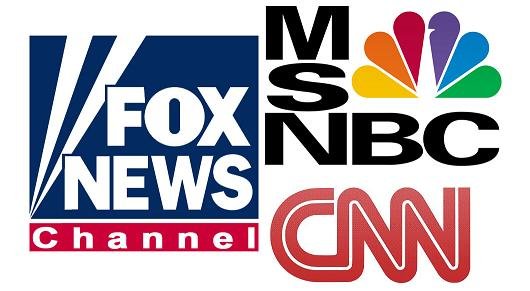Independents: more skeptical, and more likely to examine a variety of news sources

If you watch The Colbert Report, read the Wall Street Journal, and listen to National Public Radio, odds are that you are probably an Independent. That’s just one of the many noteworthy findings reported in the Pew Research Center survey of news consumption in the United States, which provides a number of insights into the reading, listening and viewing habits of American Independents.
The survey contained a number of surprising results. In the report’s audience profiles of print, radio, television and online news sources by party affiliation, Independents accounted for the largest audience shares of the Wall Street Journal, National Public Radio and Comedy Central’s The Colbert Report. Viewers of The Colbert Report were the most Independent of any source considered in the poll, which included talk radio programs, cable and broadcast news shows and print publications. 44% of The Colbert Report’s viewers are Independents, followed by Democrats at 39% and Republicans at 14%. Among readers of the Wall Street Journal, Independents (41%) outnumbered Republicans (36%) and Democrats (22%). Among print publications, Independents were also most likely to read USA Today, making up 35% of its audience share, followed by Republicans at 33% and Democrats at 26%. Finally, NPR listeners were just slightly more likely to identify themselves as Independents (41%) than as Democrats (40%), with Republicans constituting a small minority of its audience (14%).
These findings would seem to dispel the conventional wisdom that the audience of Rupert Murdoch’s Wall Street Journal is primarily conservative and Republican in outlook and identification, and that National Public Radio appeals mostly to liberals and Democrats. However, the survey also found that Independents were least likely to prefer news sources that share their own point of view, with only 19% stating that they “prefer political news from my point of view.” This stands in stark contrast with conservative Republicans, who were most likely to prefer political news that mirrors their own point of view at 41%, as well as with liberal Democrats, 33% of whom stated that they prefer political news cast from their own political perspective. Interestingly, on this score, moderate Republicans and Democrats were more similar to Independents than they were to their conservative and liberal counterparts: only 20% of moderate Republicans and 22% of moderate Democrats stated that they prefer news cast from their own point of view.
Since Independents are least likely to prefer news cast from their own point of view, this state of affairs might go some way toward explaining why there are so few publications and so little news programming explicitly geared toward an Independent audience. On the other hand, however, it may also be the case that Independents have simply come to expect that their views are not likely to be reflected in the political news media, which are dominated by Democrats and Republicans despite the fact that dwindling numbers of Americans are willing to identify themselves as Republicans or Democrats. How can one prefer radio, print or television news sources with an explicitly Independent perspective when there are few or none to listen to, read or watch?
Among cable news channels, CNN has been making a noticeable effort to integrate more self-described Independents into its political programming in recent years. However, this cannot be said to compare with the conservative Republican slant obvious at Fox News and the clear liberal Democratic slant common at MSNBC. Though such bias is often denied by the news channels themselves, it is undeniably reflected in their respective audiences. The majority of Bill O’Reilly, Sean Hannity and Glenn Beck’s viewers are conservative Republicans, while the majority of Keith Olberman, Rachel Maddow and Chris Matthews’ viewers are liberal Democrats. It is no coincidence that such programs appeal most to viewers who prefer news sources that mirror their own political perspective.
Democrats, however, are much more likely than Republicans or Independents to believe “all or most” of what is said by any given news organization, with one notable exception, namely, Fox News. Republicans are much less credulous, with one notable exception. Republicans are almost twice as likely to believe “all or most” of what is said on Fox News than Democrats and Independents.
Independents are the most consistently skeptical consumers of news. They are less likely than Republicans to believe all or most of what is said by any news organization. For example, though 41% of the Wall Street Journal’s readers are Independents, only 19% of Independents believe all or most of what they read in the publication! Given their skepticism toward the Democratic and Republican parties in general, and, given the common bias in favor of the Democratic and/or Republican parties in news publications and programming across the board in virtually all media, we should not be surprised that Independents are the most consistently skeptical consumers of news in the United States.



